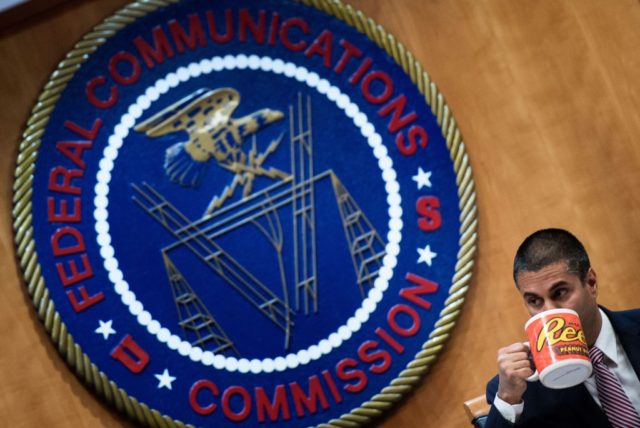The Federal Communications Commission (FCC) received a total of 22 million comments regarding the 2017 effort to repeal net neutrality during former President Donald Trump’s administration, of which the majority were fake.
A multi-year investigation found that fake comments accounted for nearly 18 million of the 22 million comments the FCC received during its 2017 rulemaking, the New York State Office of the Attorney General Letitia James found in a newly released report.
This type of fraud has had a major impact on our democracy since “Federal and state agencies rely on public comments to set standards that govern many aspects of our lives, from public health to consumer protection to the environment,” the report continued.
As a result of the investigation, James’s office found “more than 8.5 million fake comments that impersonated real people were submitted to the FCC, and more than half a million fake letters were sent to Congress.”
Including the reveal of budget, documents showed from the report that “the broadband industry players that funded the campaign spent $4.2 million in generating and submitting more than 8.5 million fake comments to the FCC.”
The FCC had also received “9.3 million fake comments supporting net neutrality that used fictitious identities.” The report found that the majority of the comments were submitted by one person. James’s office found it was a 19-year-old college student using automated software. The OAG has also confirmed in a press release that fraud was done by generators that have also “infected other government proceedings as well” in the past on more than 100 other unrelated campaigns in order to “influence regulatory agencies and public officials.”
“As a result, more than 1 million fake comments were generated for other rulemaking proceedings, and more than 3.5 million fake digital signatures for letters and petitions were generated for federal and state legislators and government officials across the nation,” the press release said.
The reports from James’s office makes several recommendations in order to “root out the deception and fraud that have infected public policymaking by agencies and legislatures”:
- Advocacy groups to take steps to ensure they have obtained valid consent from an individual before submitting a comment or message to the government on their behalf,
- Agencies and legislatures that manage electronic systems that receive comments and messages to hold advocacy groups and their vendors more accountable for the comments they submit on behalf of individuals,
- Lawmakers to strengthen laws to deter the submission of deceptive and unauthorized comments to the government, and
- Agencies to adopt technical safeguards to protect against unauthorized bulk submissions using automation.
James, in an agreement with three of the lead generators that were responsible for millions of the fake comments, stated:
Fluent, Inc., responsible for approximately 4.8 million fraudulent comments; Opt-Intelligence, Inc., responsible for more than 250,000 fraudulent comments; and React2Media, Inc., responsible for approximately 329,000 comments in the net neutrality proceeding (all or nearly all of which were fraudulent). Fluent and React2Media were also responsible, collectively, for millions of fake comments and messages submitted in dozens of other advocacy campaigns. The agreements with the OAG require the companies to adopt comprehensive reforms in future advocacy campaigns and pay more than $4.4 million in penalties and disgorgement.
In December 2017, the FCC voted 3-2 to dismantle the 2015 Obama-era rules to prevent broadband companies from slowing down or blocking any sites or apps and charging more to access certain sites.
Then-Commissioner Brendan Carr in 2017 called the repeal “a great day for consumers, for innovation, and for freedom.” Carr had later added that the vote would return the FCC to a light regulatory regime that had worked for 20 years until they were changed in 2015.

COMMENTS
Please let us know if you're having issues with commenting.